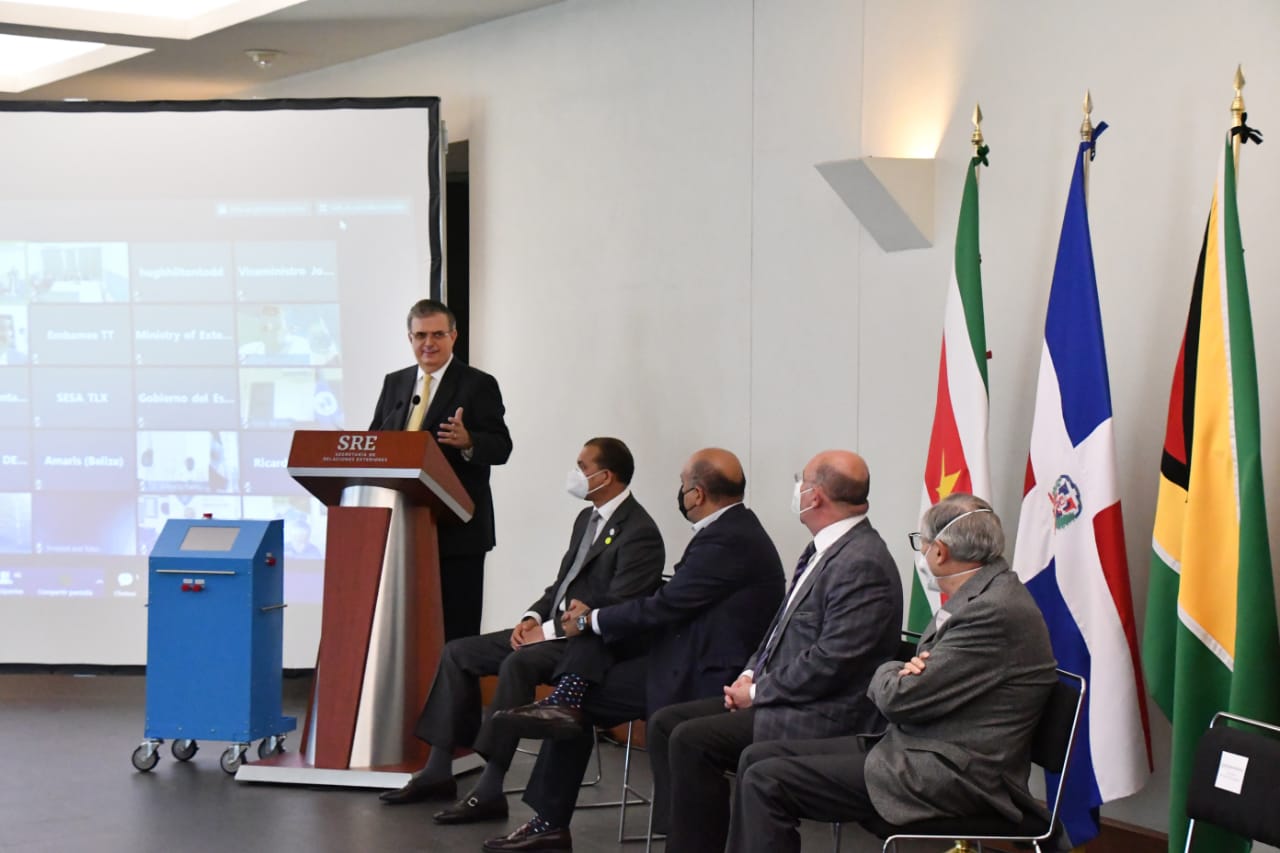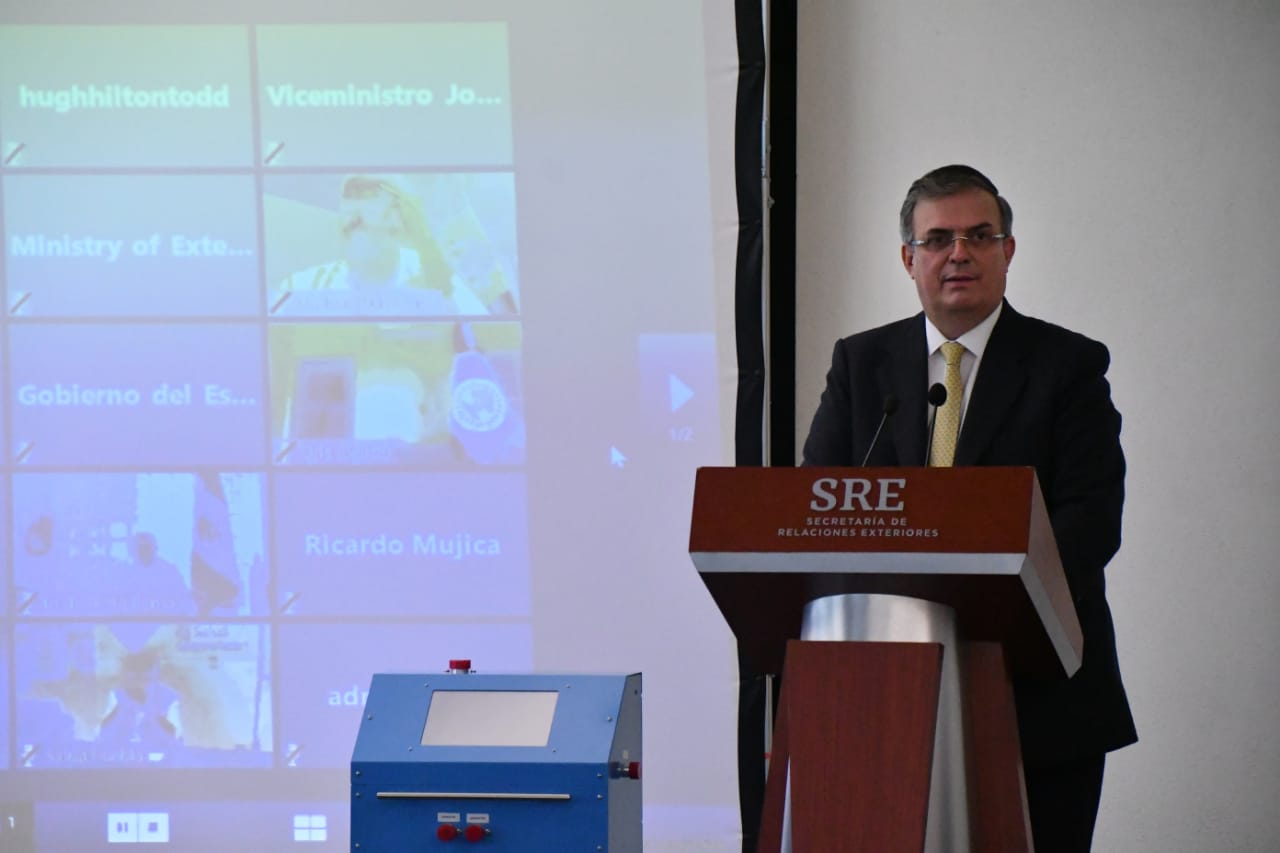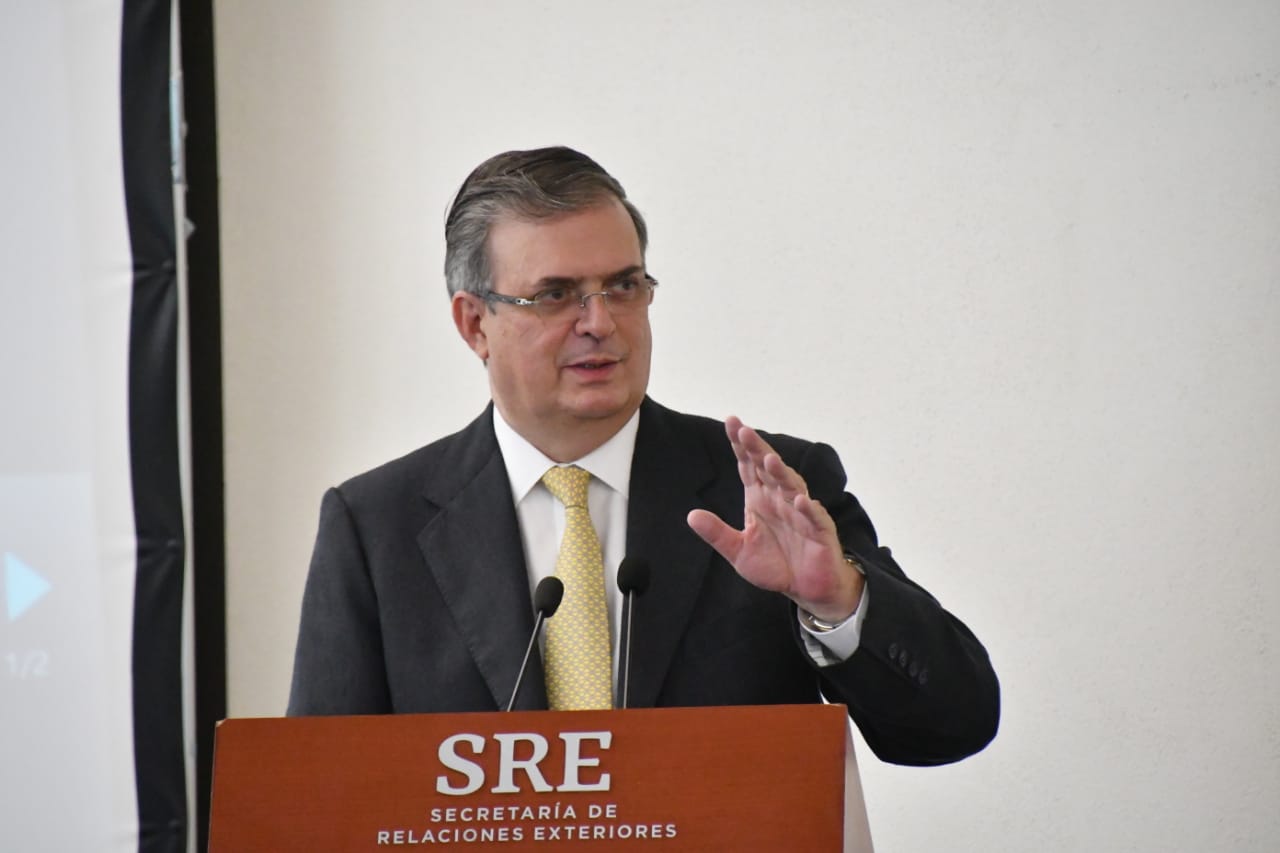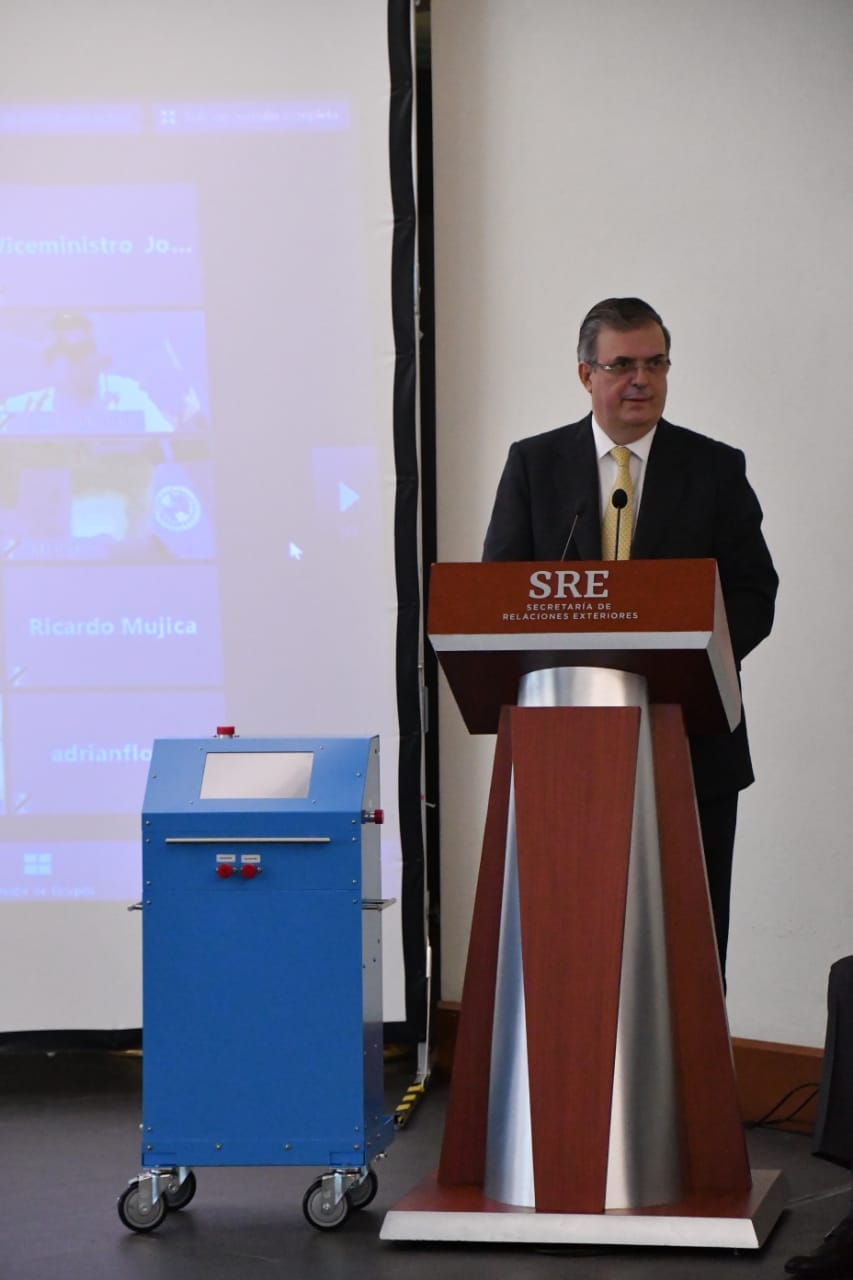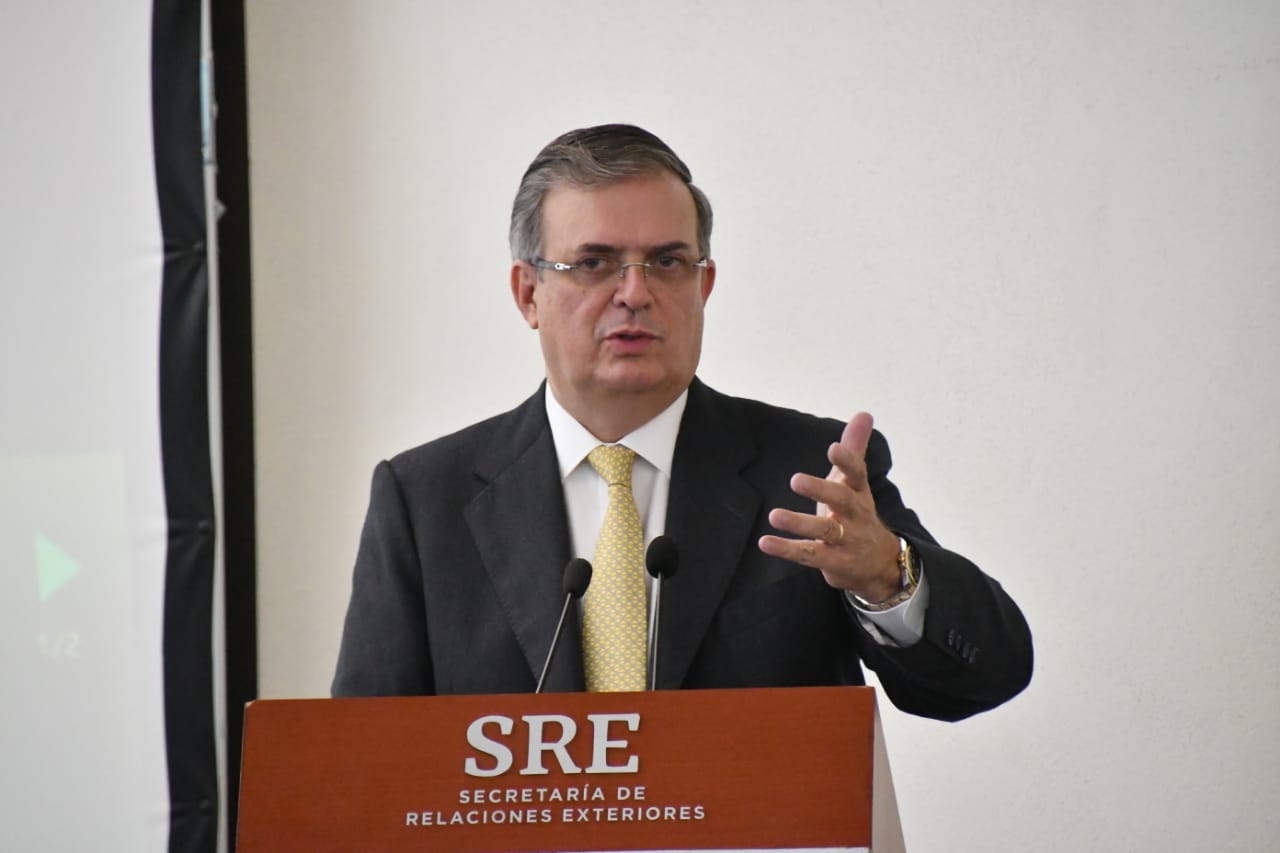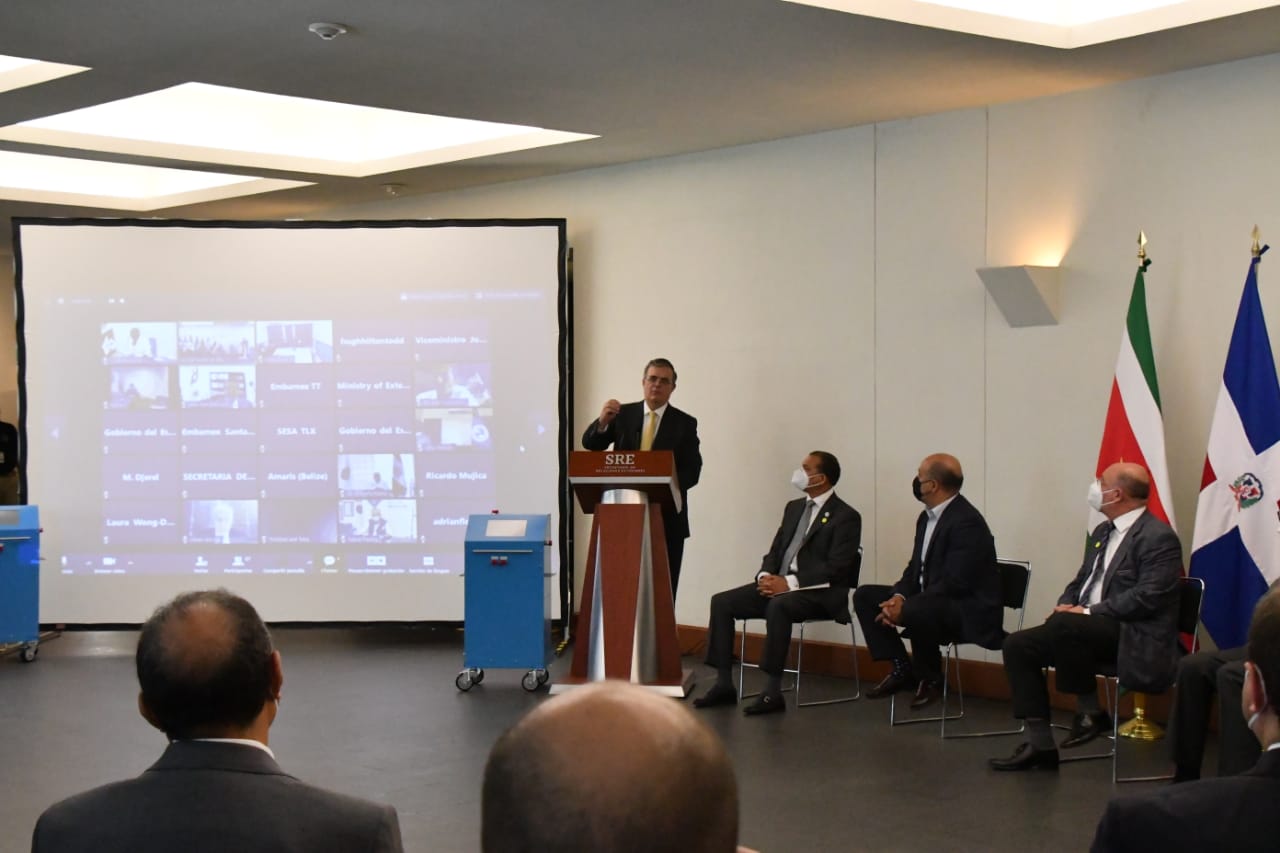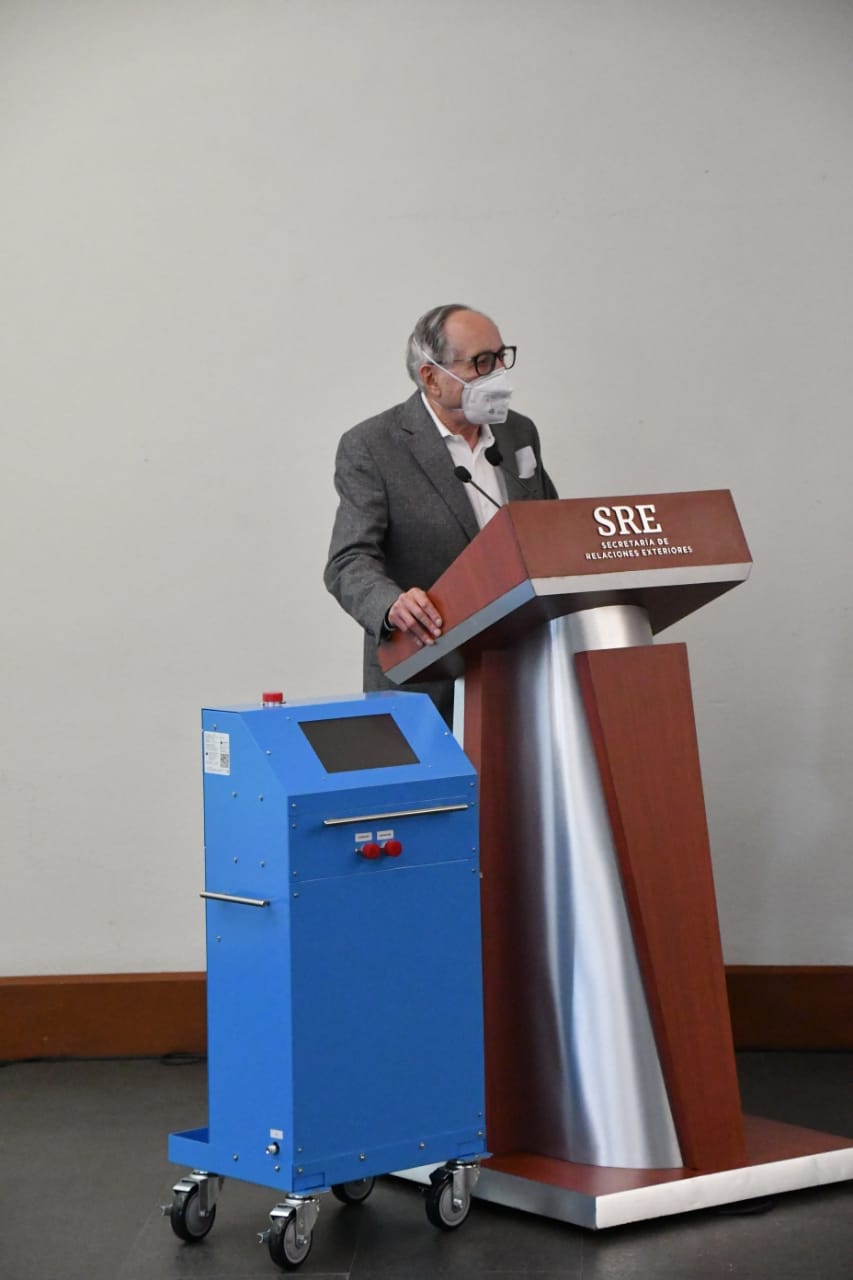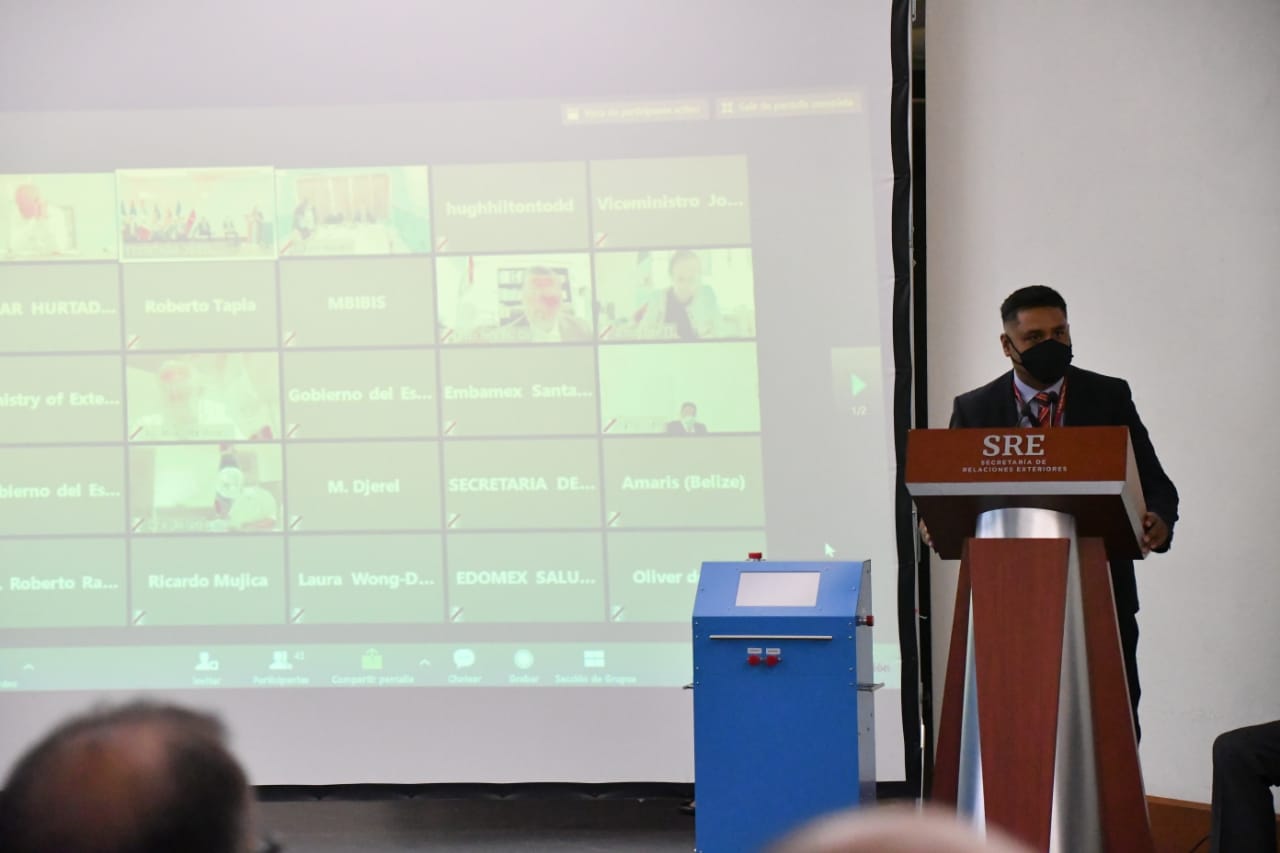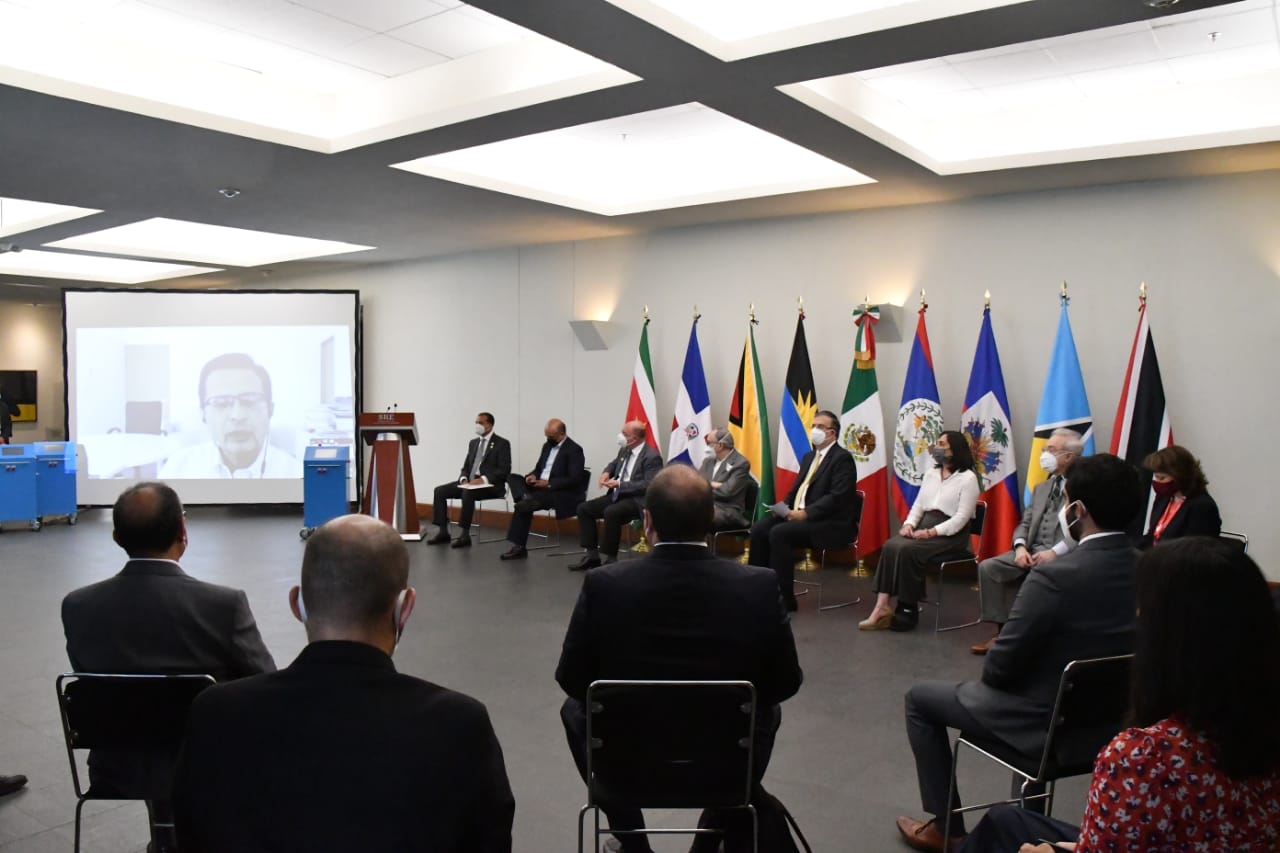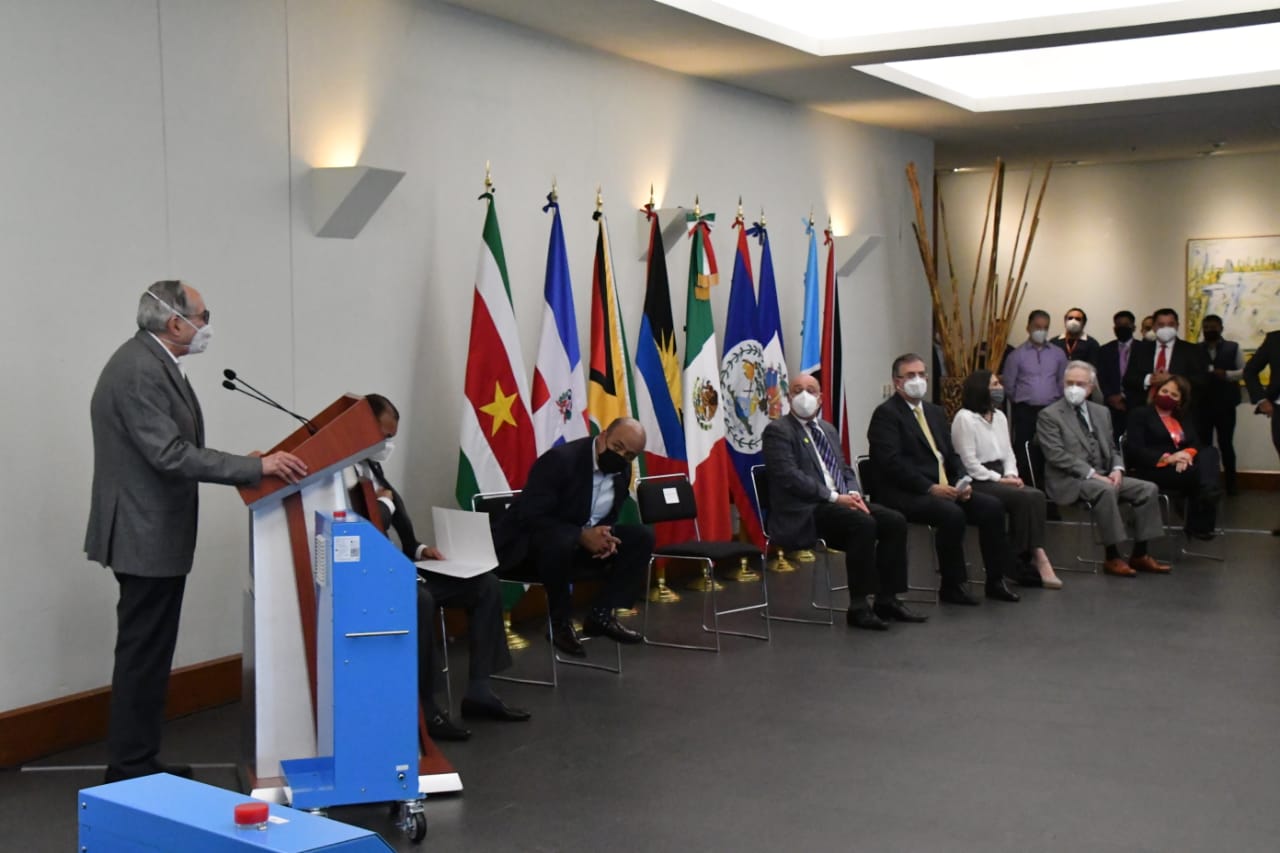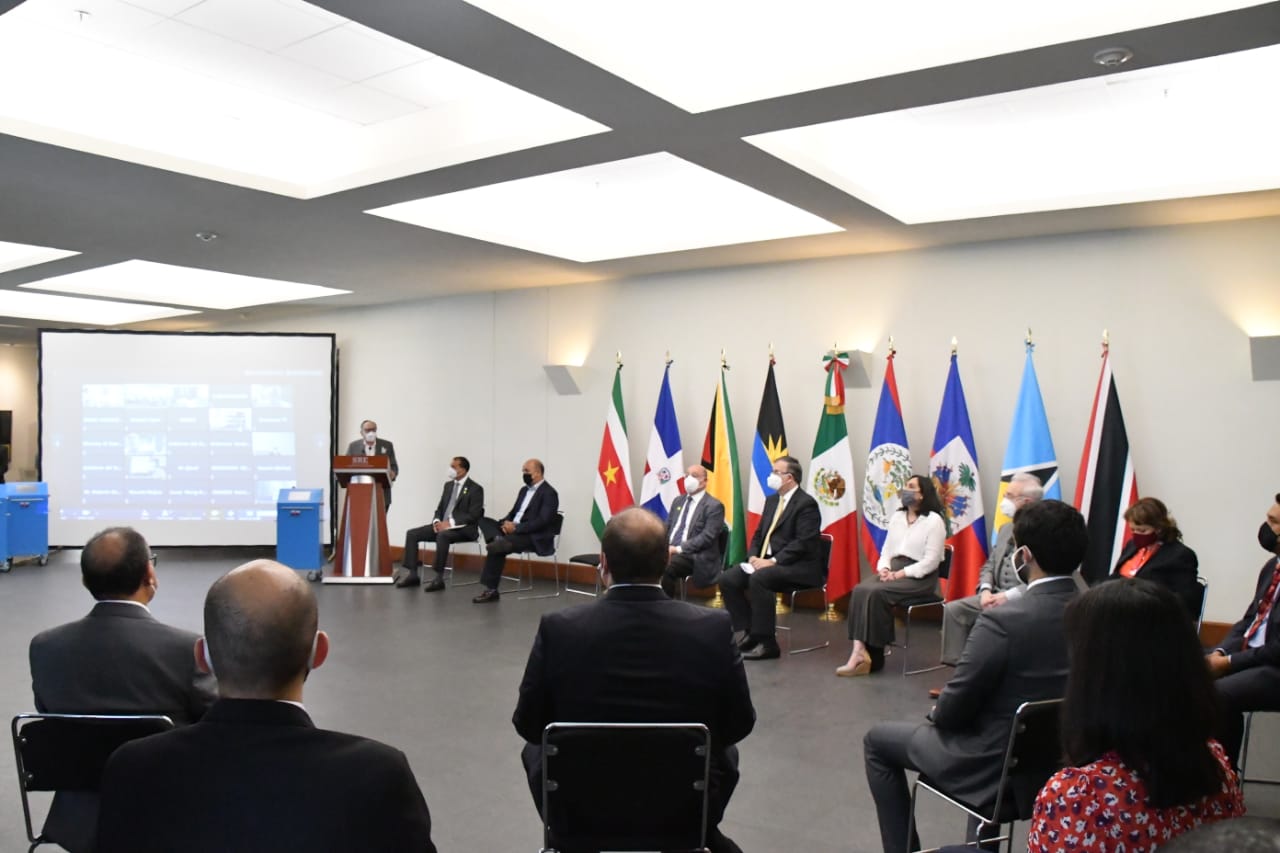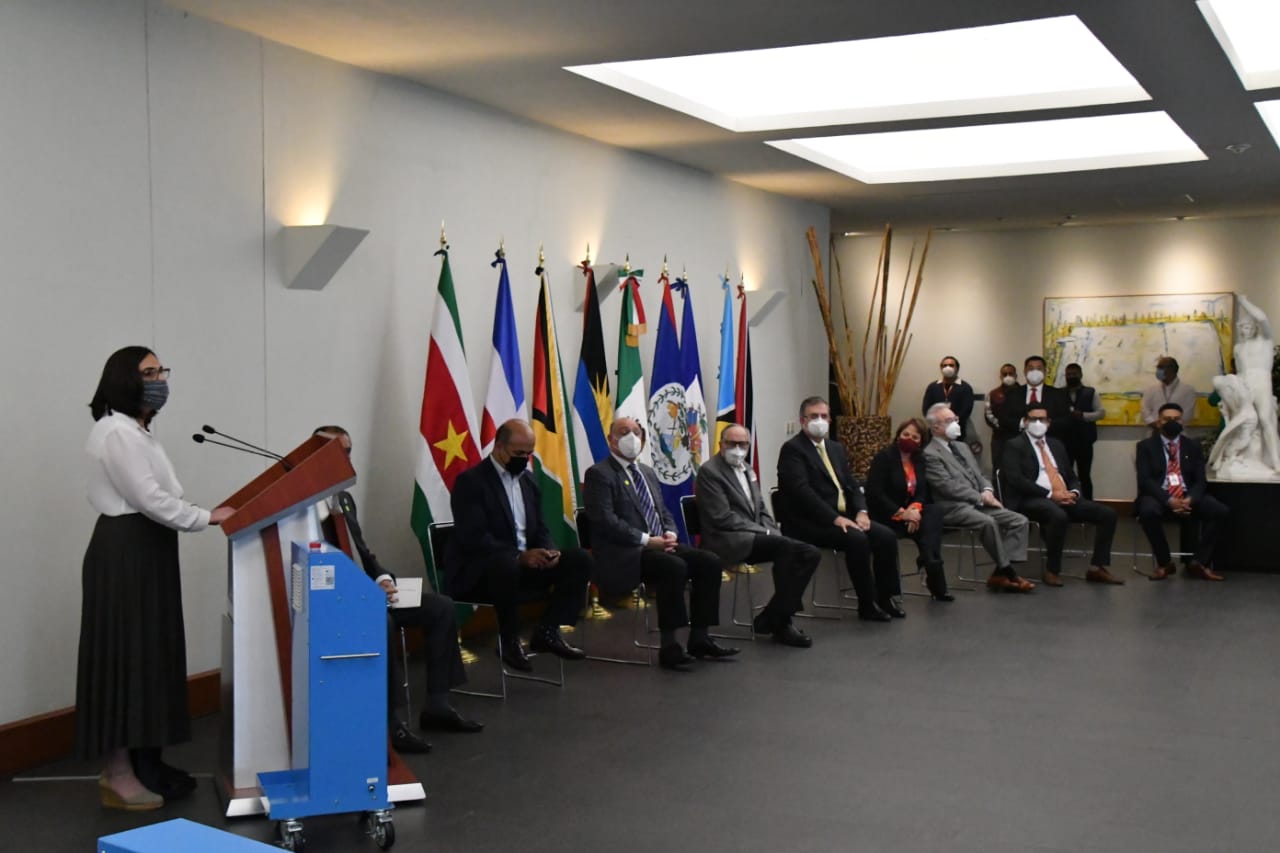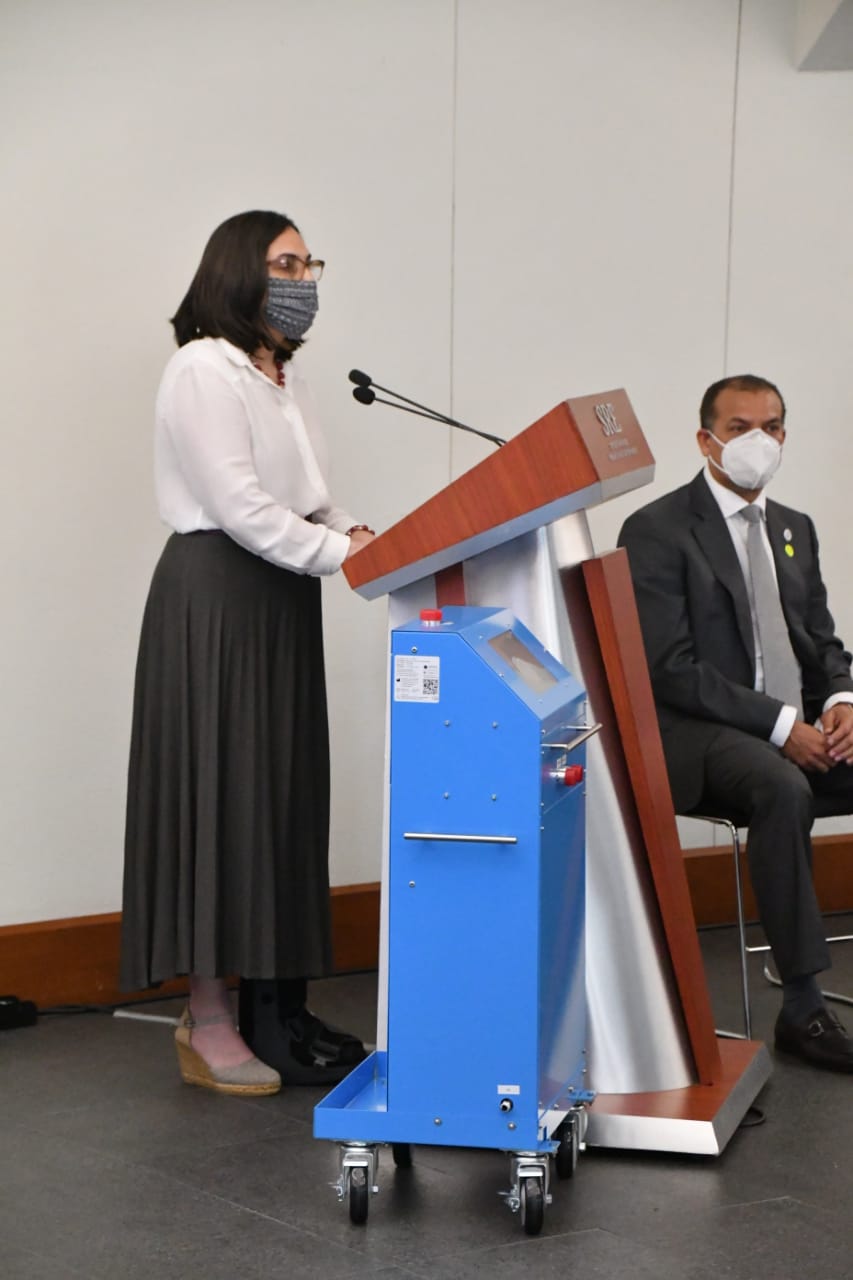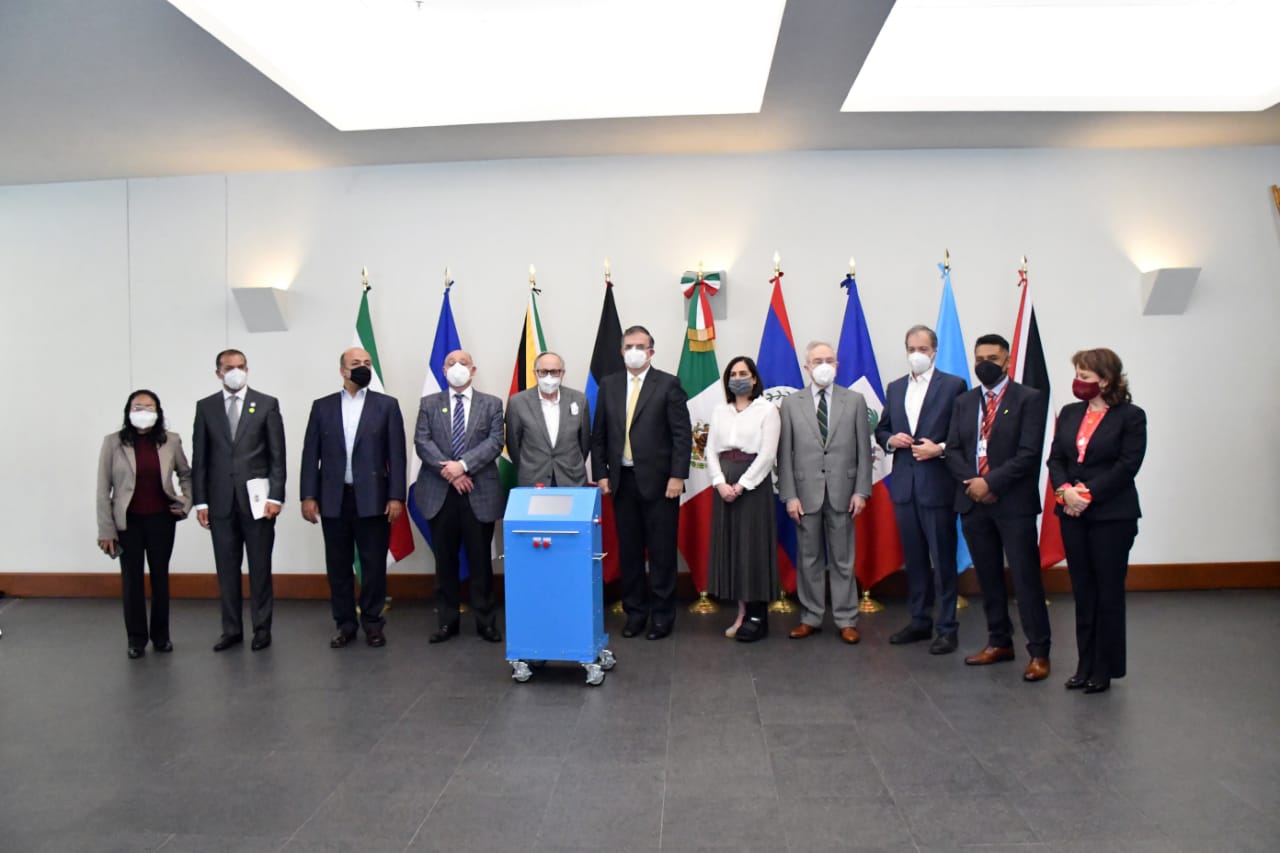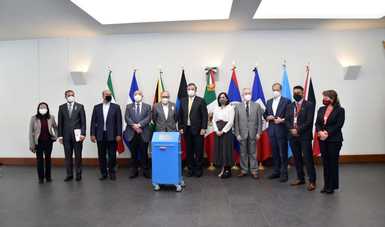- Respirator units will also be donated to eight Caribbean countries.
- The device was designed and manufactured in record time, thanks to the collaboration between the public and private sectors, highlighted Foreign Secretary Marcelo Ebrard.
In the coming days, we will begin the distribution to Mexican states of fifty-one units of the mechanical ventilator designed and manufactured by a consortium of non-profit Mexican public and private entities. The respirators will be delivered to Aguascalientes, Baja California, Estado México, Hidalgo, Guerrero, Nuevo León, Oaxaca, Puebla, San Luis Potosí, Sonora, Tabasco, Tlaxcala, Veracruz and Yucatán. This operation is financed with resources from the Mexican Agency for International Cooperation for Development (AMEXCID) and with the support of the National Nutrition Institute.
In an event held today at the Ministry of Foreign Affairs, the Foreign Secretary Marcelo Ebrard Casaubon also announced Mexico's intention to donate ventilators to eight Caribbean countries: Antigua and Barbuda; Belize; Guyana; Haiti; Saint Lucia; Surinam; Dominican Republic, and Trinidad and Tobago.
Ebrard Casaubon recalled how, in a few months, Mexico went from having a deficit of Mexican ventilators for COVID-19 patients to having its own production that today allows the country to be in solidarity with other nations.
“Mexico sends equipment to other countries, and it does so because their fate is very important to us. That is what we have demanded from the powerful, from those who have more, from those who have more industries, more resources. We have told them: It has to be universal, it has to be equitable, we have to be in solidarity, we are one people, one community" said Ebrard.
With the virtual presence of authorities from Caribbean countries, the Governor of San Luis Potosí, Juan Manuel Carrera López and Senator Héctor Vasconcelos Cruz, the Foreign Secretary recalled that, before the arrival of the pandemic in Mexico, President Andrés Manuel López Obrador instructed the Ministry to import ventilators and supplies necessary to close the deficit of this and other medical supplies. This was done primarily in the US and Chinese markets.
In order to comply with the instruction of guaranteeing supply, the Ministry of Foreign Affairs participated in the effort to develop and produce a national ventilator. This equipment was based on previous developments made by the team of biomedical engineers of the National Institute of Nutrition and with the support of a group of Mexican companies, including FEMSA, Bocar and Metalsa, among others.
Ebrard highlighted the manufacture of the ventilator, which was initially designed on April 3rd, serves as a milestone that shows what Mexicans are capable of.
“What can stop us? Well, the doubt, supposing that we are not capable, doubting ourselves, thinking that we are little. But no, this is a great people, we are a people capable of moving forward. This is what President López Obrador has asked from us and it is what he has said all the time: trust in ourselves. It is what we have and that is why we are here today" affirmed the Foreign Secretary.
Secretary Ebrard said that, for the development against the vaccine against COVID-19, the Ministry of Foreign Affairs follows the same strategy as with the ventilators: guaranteeing access to international markets and participating in initiatives to promote the development of a national antidote.
“Now we speak about the vaccine, the Russian vaccine, yesterday I was telling you about the Italian vaccine, but we are also supporting the four projects for Mexican vaccines and Mexican treatments and Mexican tests. What matters is not only having the vaccine quickly, but that Mexico does not have, in the next pandemic, to be looking for the vaccine anywhere... that we can manufacture it", he said.
For his part, the Governor of San Luis Potosí and President of the CONAGO, Juan Manuel Carrera López, recognized the effort of the Ministry of Foreign Affairs and the Government of Mexico to face this challenge and recover one of the best traditions of Mexican foreign policy, which is solidarity, in this case with the countries of the Caribbean. Likewise, he expressed his appreciation that this ventilator has been technologically developed and pointed out that "it is something very significant in the midst of what the COVID-19 emergency represents".
During the meeting, the Executive Director of AMEXCID, Laura Elena Carrillo Cubillas, announced that technical training will be provided to the Caribbean countries for the use and installation of these ventilators.
The purpose is that, once the corresponding technical requirements are met, they will be sent to the aforementioned Caribbean nations, taking into account that, as the manufacturing is carried out in Mexico, more can be sent according to demand.
